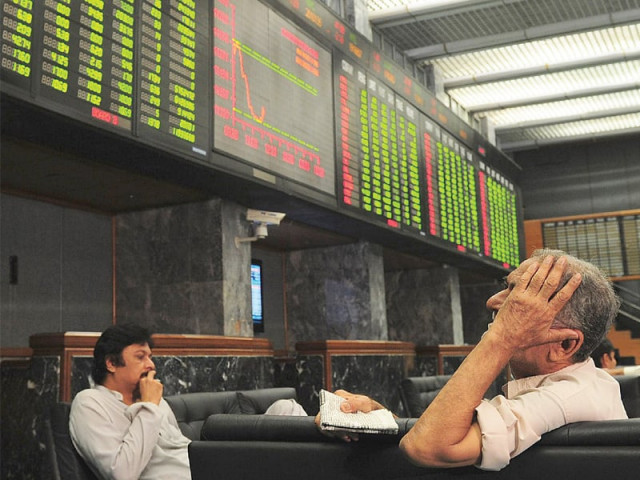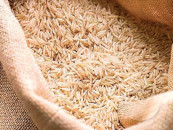Reverberations continue: Selloff expected to continue at KSE today
Analysts, however, say that now is a good time to start buying blue-chip stocks on the cheap.

The stock market’s brutal selloff, which saw the benchmark KSE 100 index shed 6.7% of its value last week, is expected to continue on Monday as investors panic over the potential implications of the unprecedented downgrading of US creditworthiness by Standard & Poors.
“Around 35% of the free float market capitalisation of the Karachi Stock Exchange is owned by foreign investors,” said Hamad Aslam, a research analyst at BMA Capital. “If they start pulling their money out as a result of this downgrade, it could affect our markets.”
Early warning signs from markets in the Middle East suggest that global markets are having a panicked reaction to what is being a deemed a seismic event in the international capital market. The Tel Aviv Stock Exchange opened late after seeing the index drop 6% in pre-open trading.
Saudi Arabia, one of the few markets to be open on Saturday, fell by 5.5%, though many feel that was at least partially due to a terrorist attack in Riyadh. The benchmark Tadawul index in Saudi Arabia remained largely flat on Sunday, however.
Most global analysts are expecting a stock market selloff on Monday morning. Analysts at JPMorgan Chase & Co, the New York-based investment bank, estimate that close to $4 trillion worth of US treasury bonds have been pledged as collateral at various financial institutions.
While not all of them are likely to be affected by the downgrade, even a small increase in the amount of capital that financial institutions are required to set aside against those transactions would have significant reverberations across the global financial system.
US financial services regulators have already said that they will not require banks and other institutions to hold more capital against their holdings of US treasuries – which lost their ‘risk-free’ rating of AAA and now rated AA+ by one of the three major credit rating agencies.
But Aslam at BMA points out that many large financial institutions have their own internal risk metrics which are often tougher than the regulations they must abide by. If they feel the need to shift their portfolio to adjust for the higher perceived risk, they may begin to sell Pakistani stocks, which would cause the market to go down.
Yet this is precisely where many investment managers expect to find opportunities. Most foreign investors’ holdings are in the most liquid, blue-chip stocks whose earnings are unlikely to be affected in the near future, meaning that the stocks that are most likely to see their prices slide are the ones that are likely to perform best in the months and years ahead.
“A lot of stocks are looking very cheap and are likely to get even cheaper over the next week,” said one equity fund manager who wished to remain anonymous. “My picks for good stocks that are currently undervalued are Engro Corporation, the Hub Power Company, Pakistan Oilfields Ltd and Fauji Fertilizer.”
Local analysts are not the only ones who are urging investors not to panic. The Lex column at the Financial Times, a column about investment opportunities, tells investors: “Ignore the immediate market reaction to the first ever downgrade of US credit – there is bound to be a knee-jerk response.”
Late on Friday, Standard & Poors, one of three biggest ratings agencies in the world, downgraded US creditworthiness after citing political gridlock in Washington that has made it virtually impossible for the US government to undertake serious economic policy decisions.
Given that the US dollar serves as the world’s reserve currency, US government debt had hitherto been considered one of the safest assets in the world. That it is no longer considered such has been a huge shock to the global financial system.
Published in The Express Tribune, August 8th, 2011.



















COMMENTS
Comments are moderated and generally will be posted if they are on-topic and not abusive.
For more information, please see our Comments FAQ